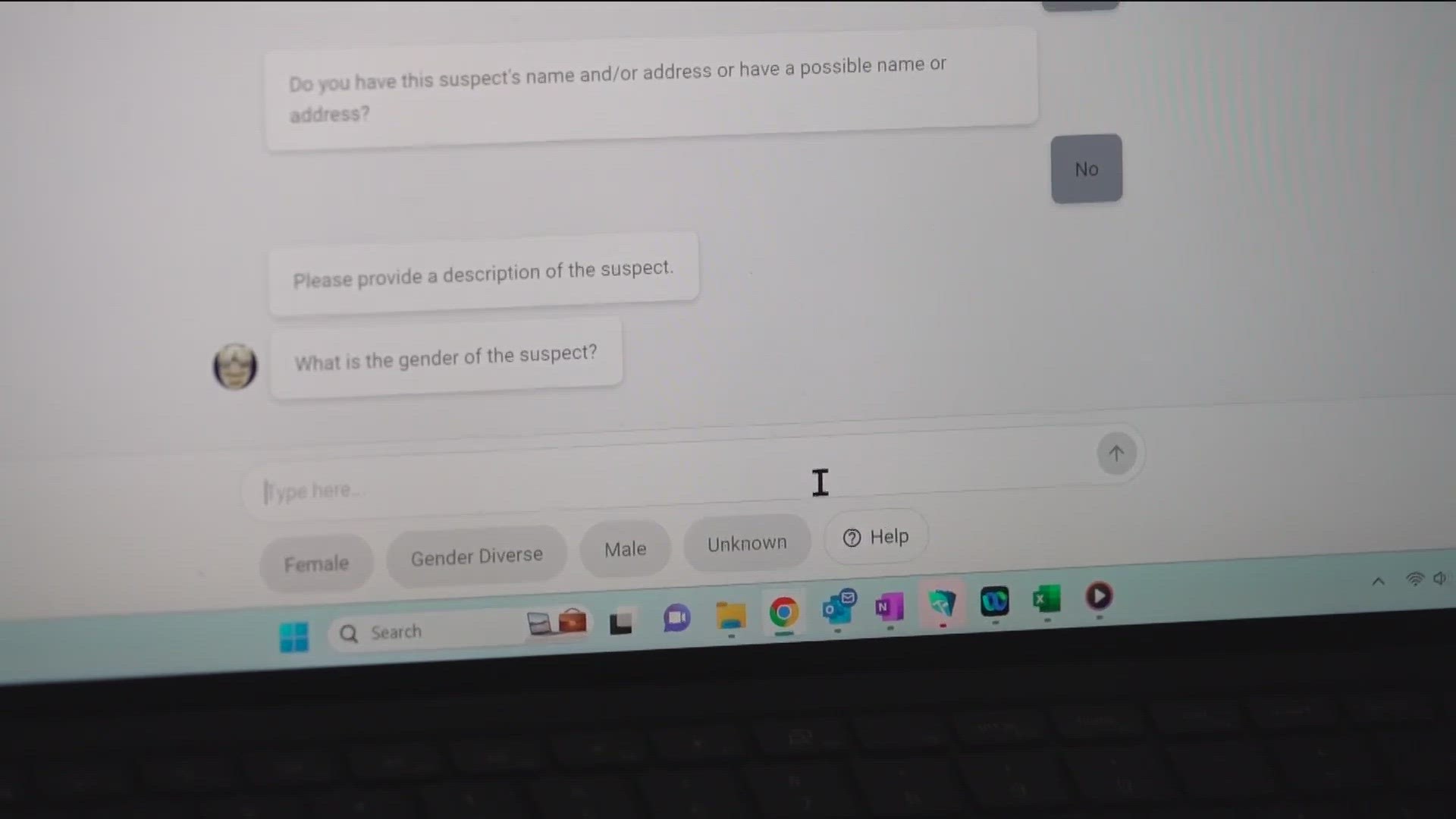AUSTIN, Texas — It's been just over two months since the Austin Police Department (APD) launched a crime reporting service via IReportAustin.com, a new online system for non-emergency crime reports during the ongoing staffing shortage.
"It seems to be successful," APD Lt. Sheldon Askew said.
Askew said since changing that system, the time between filing a report and getting it assigned to a detective has dropped from more than 30 days to an average of three to five business days.
"So what we're doing is we're capturing more information on the front end, which is alleviating, in most cases, the need for the detective to then contact the reporting party," Askew said.
The artificial intelligence chatbot is capturing more information by simply asking more questions. But some say it isn't efficient.
"I found it to be really cumbersome and slow," Aaron Von Flatern said.
Von Flatern said questions could be streamlined after he tried to file a report for a vehicle break-in at his Austin home – a crime he said often happens in his neighborhood.
"So then 10 minutes go by, 20 minutes go by and I got to the end of 30 minutes," Von Flatern said. "I got to a question where I just got stuck and couldn't move forward."
After 30 minutes of answering questions, Von Flatern ended up having to call 311 to file his report anyway. To show KVUE the areas of frustration, he walked us through another attempt.
"Was anything damaged? No," Von Flatern said. "Do you think this may be a hate crime? No."
After a series of yes or no questions, we saw some redundancies.
"'Please choose the type of location that best describes …' Now, I just told it [that] it was my home, and it's giving me suggestions like abandoned, condemned structure, train terminal," Von Flatern said.
After a few more questions, we got to the one that stumped Van Flatern last time.
"Even though I've already told it that I don't know if anything was taken, it's forcing me to choose a category of property that best describes stolen property," he said.
Von Flatern scrolled the options and didn't see one for unknown. He also couldn't skip the question.
"It just makes you want to quit," Von Flatern said. "Like, I don't want to continue this report, but I can't get out. And now I feel like a bad person if I quit."
Flatern said it was challenging trying to save his progress. It took 20 minutes of answering questions for the bot to give the access code needed to save the report and come back.
"My question is, why isn't that question off to the side where I can always access it?" Von Flatern said. "I should be able to leave this report at any time and not wait for 400 questions before I have the opportunity to leave and come back."
Von Flatern said the crime wasn't a big deal because it's unclear if anything was stolen, but he wanted to do the right thing and alert police in case it helps solve other cases.
It's been two weeks and Von Flatern said he has yet to hear from APD, meaning he hasn't been able to share the break-in video.
"Maybe you got three cases in this neighborhood, you could start to put those pieces of evidence together and see if there was a pattern," Von Flatern said. "Four in the morning, brand new car working in twos, maybe that sounds pretty organized, right? Like, there's a plan there that's not just a couple of kids screwing around."
Askew said APD has heard this complaint before, but said it's a small number compared to the about 2,500 reports the system gets a month. But he said the department is constantly evaluating how to improve the system.
"We're going to look over a period of time, the data set that we've collected, the questions that are being asked, whether or not they're applicable, whether or not we need to shift, but ask additional questions, less questions, so on and so forth," Askew said.
APD doesn't have a timeline for when changes could come, if ever. Von Flatern just hopes the slew of unnecessary questions won't lead to a slew of unreported crimes.

